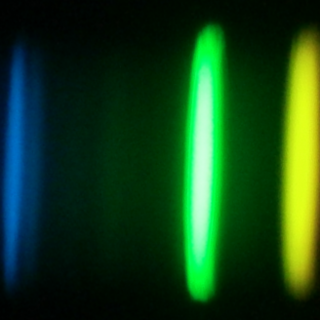Bibcode
Brown, Warren R.; Kilic, Mukremin; Hermes, J. J.; Allende-Prieto, C.; Kenyon, Scott J.; Winget, D. E.
Referencia bibliográfica
The Astrophysical Journal Letters, Volume 737, Issue 1, article id. L23 (2011).
Fecha de publicación:
8
2011
Número de citas
150
Número de citas referidas
127
Descripción
We have discovered a detached pair of white dwarfs (WDs) with a 12.75
minute orbital period and a 1315 km s-1 radial velocity
amplitude. We measure the full orbital parameters of the system using
its light curve, which shows ellipsoidal variations, Doppler boosting,
and primary and secondary eclipses. The primary is a 0.25 M
sun tidally distorted helium WD, only the second tidally
distorted WD known. The unseen secondary is a 0.55 M sun
carbon-oxygen WD. The two WDs will come into contact in 0.9 Myr due to
loss of energy and angular momentum via gravitational wave radiation.
Upon contact the systems may merge (yielding a rapidly spinning massive
WD), form a stable interacting binary, or possibly explode as an
underluminous Type Ia supernova. The system currently has a
gravitational wave strain of 10-22, about 10,000 times larger
than the Hulse-Taylor pulsar; this system would be detected by the
proposed Laser Interferometer Space Antenna gravitational wave mission
in the first week of operation. This system's rapid change in orbital
period will provide a fundamental test of general relativity.
Based on observations obtained at the MMT Observatory, a joint facility
of the Smithsonian Institution and the University of Arizona, and on
observations obtained at The McDonald Observatory of The University of
Texas at Austin.
Proyectos relacionados

Abundancias Químicas en Estrellas
La espectroscopía de estrellas nos permite determinar las propiedades y composiciones químicas de las mismas. A partir de esta información para estrellas de diferente edad en la Vía Láctea es posible reconstruir la evolución química de la Galaxia, así como el origen de los elementos más pesados que el boro, forjados principalmente en los interiores
Carlos
Allende Prieto